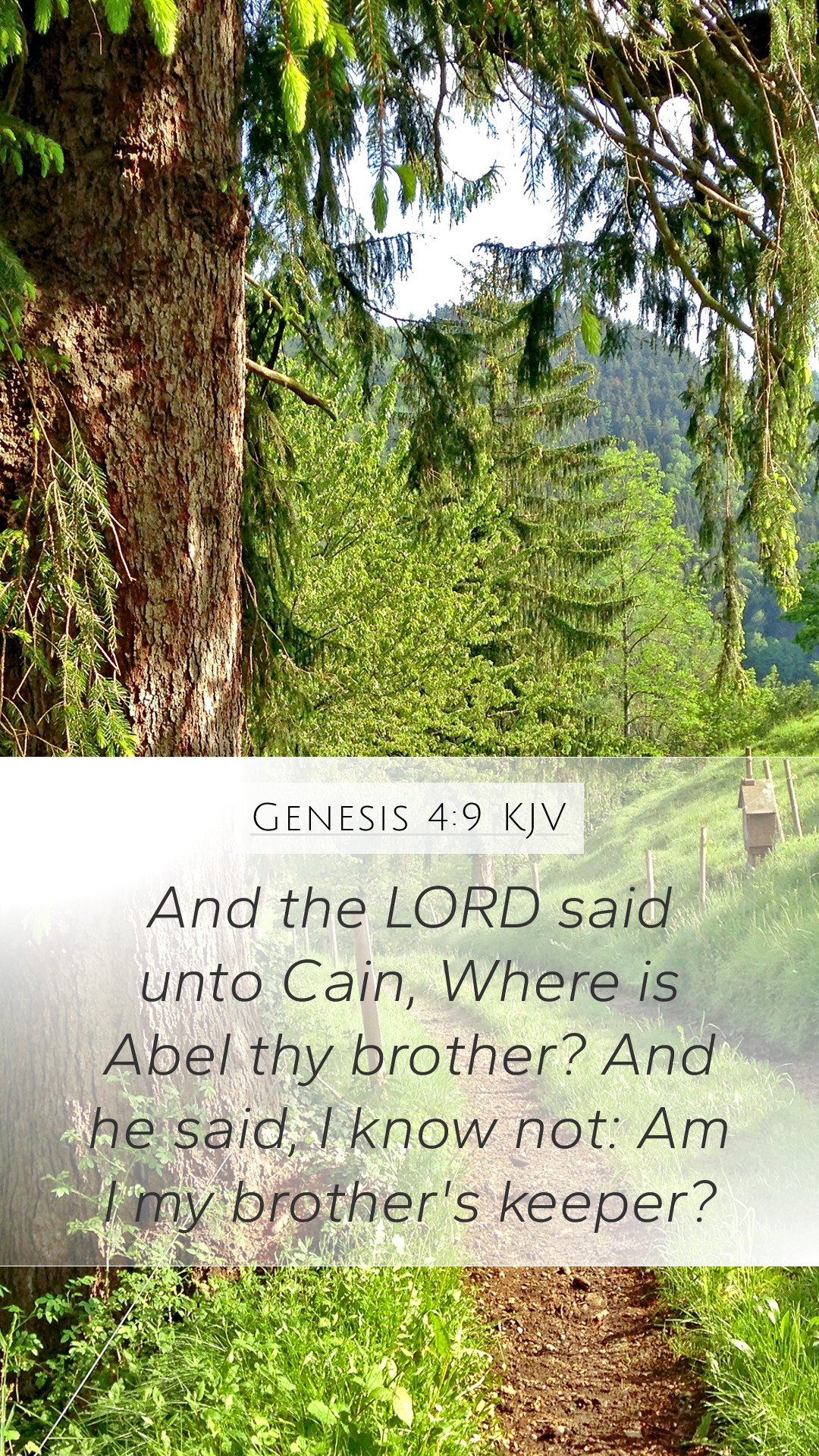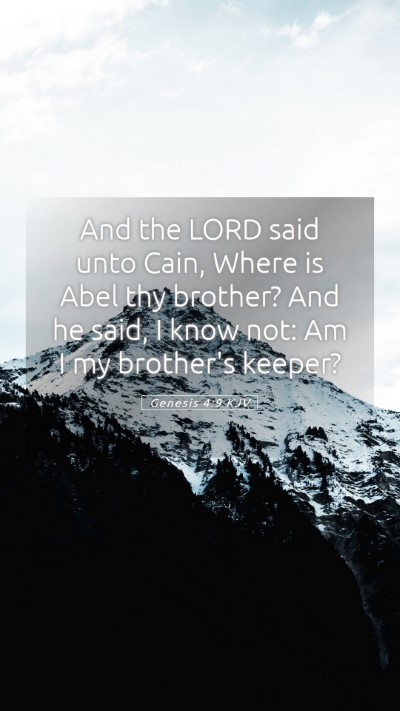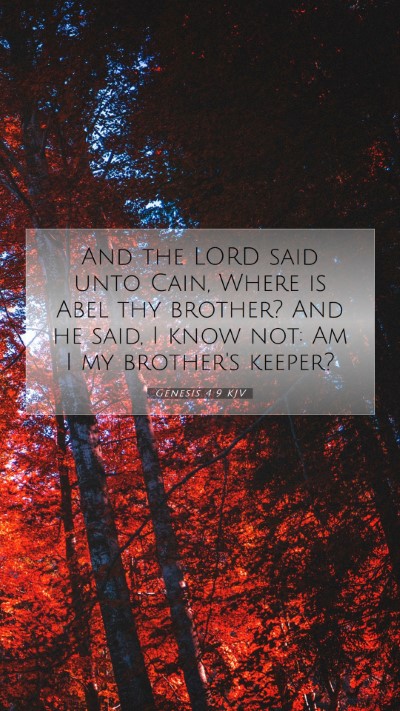Understanding Genesis 4:9
Genesis 4:9 states: "Then the LORD said to Cain, 'Where is Abel your brother?' He said, 'I do not know; am I my brother's keeper?'
This verse encapsulates a critical moment in the narrative of Cain and Abel, marking the first murder in biblical text. Cain’s response carries with it layers of meaning and reveals much about human nature and moral responsibility.
Bible Verse Meanings
According to Matthew Henry’s Commentary, this interaction emphasizes God’s omniscience and His probing questions often reveal the truth of human actions. When God asks Cain about Abel, He is not seeking information but rather inviting Cain to confront his own sin and responsibility.
Albert Barnes notes that Cain’s lie demonstrates his attempt to evade accountability. His rhetorical question, "Am I my brother’s keeper?" suggests a denial of responsibility, indicating a deeper moral failing that transcends personal guilt and reflects societal implications.
Adam Clarke elaborates on this point by suggesting that Cain's defensiveness shows not just guilt but a fundamental misunderstanding of familial obligations. The implication raises essential questions about the nature of our relationships and moral duties towards others.
Bible Verse Interpretations
- God’s Inquiry: God's question to Cain about Abel is viewed as an important reminder of divine accountability. Unlike Cain, God knows Cain’s deeds, and by asking, He calls Cain towards repentance rather than punishment.
- Moral Responsibility: The phrase "Am I my brother's keeper?" highlights the essential biblical principle that we are indeed responsible for one another in communities. This idea is foundational in understanding brotherly love and societal ethics.
- Human Nature: Cain's immediate reaction reveals a grave aspect of human nature; he resorts to denial and deflection instead of confronting the horror of his actions. This denial is a pattern found throughout human history.
Scripture Analysis
Genesis 4:9 serves to illustrate various themes prevalent throughout the Bible such as sin, accountability, and the nature of our relationships with others. It reflects the moral decay that can derive from jealousy and anger.
Biblical Exegesis
In terms of biblical exegesis, this verse also lays a framework for exploring concepts of sin and redemption that recur throughout scripture. Cain's question can be seen as an archetype for human conflict and negligence towards our moral responsibilities.
In-Depth Bible Verse Analysis
This verse has implications for understanding how we apply biblical teachings to our lives. It encourages introspection regarding how we perceive and address our duty towards familial relationships and, by extension, to all members of humanity.
Related Bible Cross References
- Matthew 22:39: Jesus teaches about loving your neighbor as yourself, reinforcing the idea of brotherly responsibility.
- Romans 14:12: This verse states that each of us will give an account to God for ourselves, reinforcing moral accountability.
- 1 John 3:12-15: This passage discusses the nature of Cain's actions and contrasts them with the love we should show towards one another.
Understanding Difficult Bible Passages
Many wrestle with understanding such a passage, particularly in finding personal relevance. Genesis 4:9 challenges readers to consider how they view relationships and their own responsibilities.
Applying Bible Verses to Daily Life
The question “Am I my brother’s keeper?” calls for reflection on how we treat others in our daily lives. This verse serves as a reminder for community integrity and the importance of caring for one another's well-being.
Conclusion
In conclusion, Genesis 4:9 serves as a profound invitation for self-reflection regarding our responsibilities towards others. Through engaging with this highly significant verse, we are also prompted to engage with broader concepts like moral duty, communal accountability, and our relationship with God.
Resources for Further Study
- Bible study guides exploring themes of family and responsibility.
- Commentaries focusing on Genesis and the narrative of Cain and Abel.
- Online Bible study tools promoting deeper engagement with scripture.


